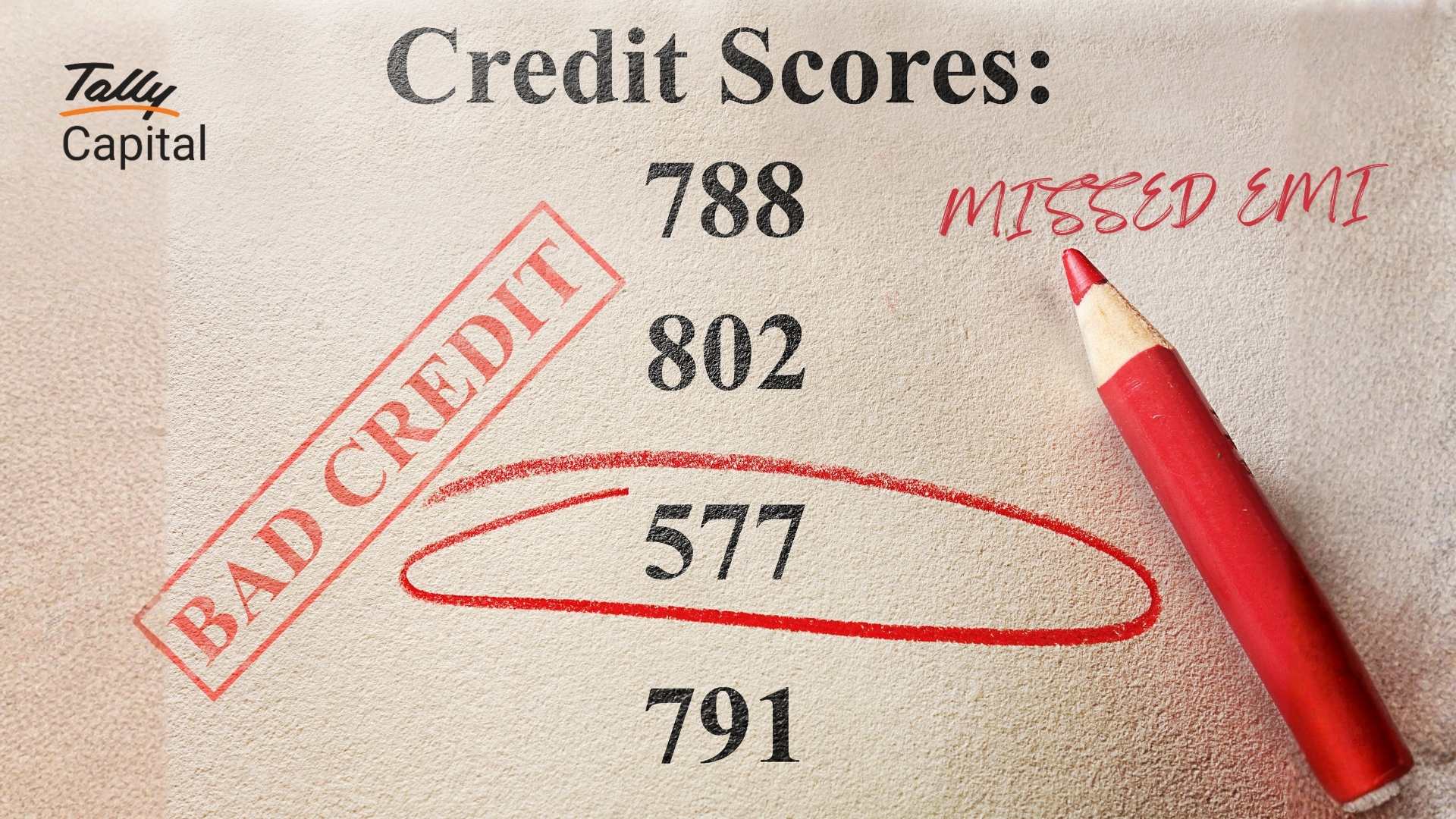Why Your Credit Score Decreases?
Imagine this – you’ve been careful with your finances. Your loan EMIs are paid, your credit cards are in check; yet when you check your credit score, it’s gone down.
Confusing, right?
You’re not alone. Many business owners notice this dip and wonder what went wrong. The truth is that a credit score decreases even when you’re managing things responsibly. Let’s understand why that happens, how it impacts your borrowing potential, and what you can do to fix it.
Understanding What a Credit Score Really Tracks
Your credit score is a three-digit summary of how lenders view your financial behavior. It’s calculated by credit bureaus like CIBIL, Experian, Equifax, and CRIF High Mark.
Every month, your lender sends your repayment data to these bureaus. They consider five broad factors to calculate your score:
| Factor | Weightage (approx.) | Meaning |
|---|---|---|
| Payment history | 30 – 35% | Whether you pay EMIs and bills on time |
| Credit utilisation ratio | 25 – 30% | How much of your credit limit you’re using |
| Credit age | 10 – 15% | How long you’ve had credit accounts |
| Credit mix | 10% | Balance between secured (loan) and unsecured (credit card) |
| New credit inquiries | 10% | Number of new loan/credit card applications |
A sudden change in any of these can bring your score down, even if you’re technically paying everything on time.
Top Reasons Why Your Credit Score Decreases
Let’s break down the most common reasons why credit score decreases.
You’re using too much of your available credit
If your business credit card or overdraft usage regularly touches 80–90% of the limit, it signals high dependency on credit.
ven if you pay on time, this high utilisation ratio can lower your score.
Recommendation – Try to keep your total credit usage below 30% of your approved limit.
You’ve closed an old loan or credit card
This one surprises most business owners.
When you close a long-standing loan or old credit card, your overall credit age shortens and your available limit drops.
That can temporarily reduce your score because credit bureaus view longer credit histories as more reliable.
If the card has no annual fee and isn’t hurting your finances, keep it open. Old accounts strengthen your credit profile.
You’ve applied for too many loans in a short span
Each time you apply for a loan or business credit, the lender pulls out your report that results in a hard inquiry. Too many of these in a short period can bring your score down by 10 – 20 points.
Recommendation – If you’re exploring loan options, keep a gap between them. Compare lenders first, then apply selectively, not all at once.
A lender reduced your credit limit
Sometimes your lender reduces your business card or overdraft limit (based on policy changes or inactivity).
That automatically increases your utilisation percentage and can bring your score down — even though you did nothing wrong.
Recommendation – You can request a limit restoration or maintain a lower balance to balance out the ratio.
There’s an error or delay in data reporting
Not all score drops are your fault. Sometimes, lenders delay reporting data, or the bureau reflects wrong information; an account may show as “active” when it’s already closed.
If you’ve cleared a loan, but your report hasn’t been updated, your score might temporarily fall.
Recommendation – Always check your credit report monthly and review the “Last Updated” date. If it’s older than 45 days, your data may not be current.
You can raise a correction request directly with the bereau. As per CRIF High Mark, most verified disputes are resolved within 30 days.
You’ve missed a small payment you didn’t notice
Sometimes, the reason is as small as a missed credit card annual fee or overdue business card interest. Even a ₹500 unpaid amount can trigger a “late payment” flag, pulling your score down.
Recommendation – Set auto-debit for all recurring payments to avoid small oversights.
What a Drop Means for Your Business
If your credit score decreases below 750, some lenders may:
- Offer you loans at higher interest rates
- Ask for additional security or co-applicants
- Approve smaller amounts than requested
For MSMEs, even a short-term dip can affect your ability to borrow quickly when opportunities arise, like stocking up before the festive season or expanding to a new city.
How to Recover when Credit Score Decreases
Here’s a plan you can follow:
- Check your credit report every month.
Use TallyCapital to download your credit report.
- Lower your utilisation ratio.
Try paying down high balances first. Even reducing usage from 80% to 30% can improve your score in the next update cycle.
- Avoid multiple loan applications.
Compare loan options before applying. With TallyCapital, you can explore pre-qualified offers without affecting your score.
- Fix reporting errors.
If your report shows incorrect data, raise a dispute immediately with the bureau and notify your lender.
- Be patient.
Scores recover steadily, not instantly. As long as your repayments are consistent, you’ll see improvements over the next 1-2 reporting cycles (roughly 60 days).
The Bottom Line
A drop in your credit score doesn’t always mean you’re doing something wrong; it often means the system is reflecting temporary changes or delayed updates. What matters is maintaining financial discipline and knowing how to respond.
Keep your utilisation low, monitor your reports regularly, and keep a gap between your credit applications.
If your MSME’s credit score has recently fallen and you’re unsure why – checking it through TallyCapital can help you understand your score better and prepare your business for the next growth phase.
Because when you understand your credit health, you don’t just manage your score, you strengthen your business’s financial health.
Latest Blogs

Missed EMI Impact on Credit Score:Every Borrower Must Know

How Personal Credit Score Affects Business Loan Approval

Credit Score for Business Loans: Get Faster Disbursals

What Causes a Sudden Drop in Credit Score? Common Reasons Explained

Credit Score Guide for Small Business Owners in India

9 Credit Score Mistakes MSME Owners Make

